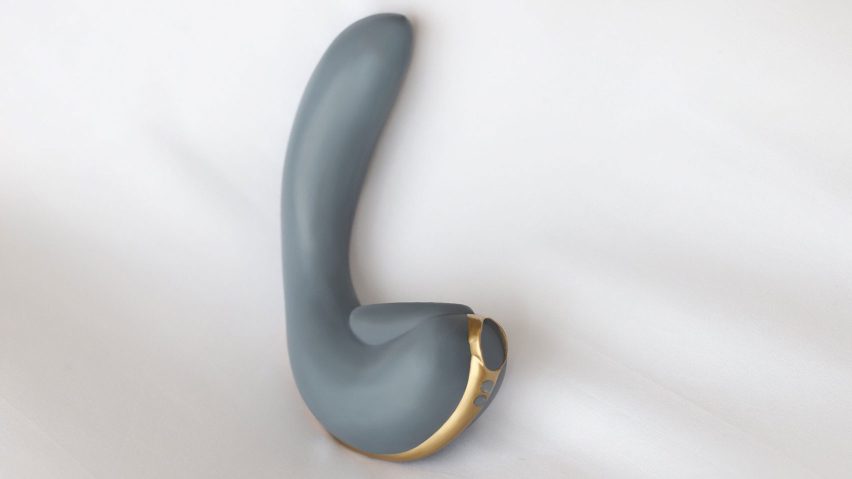Awarding then banning a robotic sex toy at this year's Consumer Electronics Show proves the technology industry's oblivious attitude towards women's wants and needs, says tech writer Holly Brockwell.
It surprises no one to hear that the world of tech is sexist, but the ways in which that sexism manifests can still shock even those of us knee-deep in the industry. The news this week that the best-known tech tradeshow in the world – the annual Consumer Electronics Show (CES) in Las Vegas – banned a women's sex toy from its halls was one of those occasions.
Having been to CES and other tech shows plenty of times, I'm depressingly familiar with women being ignored, talked down to, sleazed on, and used as decoration. But even my jaw dropped at the downright backwards events of this week, in which CES gave one of its prestigious Innovation Awards to a robotic sex toy for women, then rescinded it, then banned said toy from the show entirely.
The Consumer Technology Association, which runs the show, told the toy's manufacturer Lora DiCarlo that products "deemed by CTA in their sole discretion to be immoral, obscene, indecent, profane or not in keeping with CTA's image" were barred.
The message Osé's banishment sends is that women's sexual pleasure has no place at CES
Firstly, there has long been sextech at CES, so this sudden prudishness is bizarre. Secondly, there is nothing immoral, obscene, indecent or profane about women's sexual enjoyment, so I can only assume the toy was deemed "not in keeping with CTA's image". Which begs the question, is the CTA's image one in which women don't get to orgasm?
The organisation later backtracked, of course, and said the award was rescinded because the gadget didn't fit into any of the show's categories. To which Lora DiCarlo rightly asked how, then, it could have got through the application and judging process, been awarded high marks for its innovative biomimicry and robotic tech, and ultimately won the award in the first place.
It's truly shocking that high-profile tech organisations are still making gendered blunders like this. It's as if they've learnt nothing from the many, many brands who've lost respect and customers as a result of their sexist advertising, employees' treatment of women, unnecessarily gendered products, total lack of boardroom diversity, and of course use of "booth babes" – the half-dressed female models hired to look pretty at a brand's exhibition stand, while knowing precisely zero about the products (believe me, I've asked).
Every time it seems things have improved and the industry has matured, something like this happens. There are already pitifully few female-made products at CES, so the original decision to give an award to a smart piece of sextech created by an almost entirely female team was a good one.
And it truly is an innovative product, as the entire world now knows – the Osé massager is a hands-free toy designed to produce "blended" orgasms, a combination of clitoral and vaginal climaxes. That is not only something women need and want, but it fulfils an important educational purpose too: letting the world know that many of us can't finish just from having something poked into our vaginas – wouldn't tampons be a joy if we could? – and would appreciate some external stimulation as well. Is it too harsh to suggest that someone on the committee found the Osé's talents threatening to their sexual prowess?
This sudden prudishness is bizarre
The message its banishment sends is that women's sexual pleasure has no place at CES. Men's does, of course – no one's banning the virtual-reality pornography, the sex robots designed for male pleasure, or indeed the pole-dancing robots that made an appearance at the show last year. But if us lady types are going to insist on muscling in on tech-bro territory, it seems we should stay in our designated boxes.
The only products I ever see in the women's section at these events are beauty gadgets, designed to make us more appealing to men; and parenting tech, because apparently fathers have better things to do, like deciding who gets the robotics award.
At a recent tech show, I was immediately taken by the arm by a man gushing "I have something you'll love!" and steered to a baby-feeding gadget, despite being childless and vocally uninterested in parenthood. But, you see, I was a woman at a tech event, so clearly I was there for the WiFi-connected breast pumps.
They'll gladly take our money for rose-gold smartphones and period-trackers, but evidently not for orgasmic bliss
The fact that women have to have sex to become mothers in the first place doesn't appear to have occurred – or perhaps we're just not supposed to enjoy it. That would be immoral, you see, and a very male show held in Sin City – often at the same time as porn-award show the Adult Entertainment Expo, a fact considered a perk by some CES attendees – with booth babes still clinging on and a dire lack of women on the speaking schedules, can't afford to taint its family-friendly image with something so sordid as sexual release for half the planet. Not the wrong half, anyway.
It's hard to read the CTA's decision as anything other than that disheartening phenomenon we've seen again and again in male-dominated industries: abject terror at the idea of liberated, adventurous women with sexual autonomy. They'll gladly take our money for rose-gold smartphones and period-trackers, but evidently not for orgasmic bliss.
The irony, of course, is that this whole charade has helped the CTA achieve something many tech organisations never have: making a female-engineered, female-oriented tech product world famous. It's just a shame it had to shoot itself in the foot to get there.

